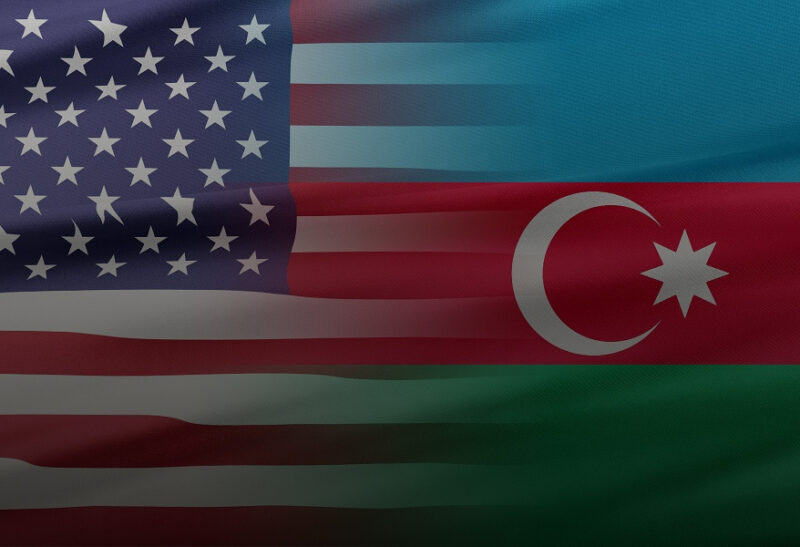Out of 542 judgements issued by the European Court of Human Rights (ECHR) concerning Azerbaijan, 343 have not been implemented by the government.
In 2025, Azerbaijan may be considered the leading country in failing to implement ECHR judgments.
Azerbaijan has been a member of the Council of Europe since 2001. As a result, individuals within the country who are unable to obtain a favorable outcome in national courts and allege that their rights have been violated are entitled to submit applications to the European Court of Human Rights. As of early 2025, statistical data indicates that a total of 1,968 complaints have been filed with the European Court of Human Rights concerning Azerbaijan, with 1,113 of these cases still awaiting initial review or action.
Furthermore, the European Court of Human Rights has issued judgments in 542 cases related to Azerbaijan to date, including seven recent ones. According to the latest data from the Council of Europe, 192 of these judgments have been executed by the Azerbaijani government, leading to the closure of those cases. However, excluding the newly issued decisions, 343 judgments remain unimplemented, and the related enforcement proceedings are still in progress.
How are ECHR decisions carried out?
For many years, ECHR judgments have been a major concern in Azerbaijan. Thousands of citizens, unable to obtain justice in domestic courts, turn to the ECHR as their final option. However, despite numerous rulings, significant challenges remain in enforcing them.
Similar to many international organizations, the Council of Europe has limited enforcement mechanisms, which are largely based on diplomatic principles rather than binding measures. While Article 46 of the European Convention on Human Rights asserts that ECHR rulings are binding, the Council of Europe does not possess the necessary resources to guarantee immediate compliance.
Implementation Process
According to the European Convention, the Committee of Ministers (CoM) of the Council of Europe is responsible for overseeing the implementation of ECHR rulings. This body is primarily political, made up of representatives from the foreign ministries of the member states. The CoM issues recommendations for member states and also monitors the enforcement of ECHR judgments.
The CoM is technically assisted by the Department for the Execution of Judgments of the European Court of Human Rights, which functions under the Council’s Directorate General for Human Rights and Rule of Law.
Therefore, two bodies within the Council are responsible for this process: the CoM holds primary authority, while the Department manages the organizational and technical aspects of oversight.
The CoM assesses the implementation of judgments every quarter and conducts monitoring sessions for all rulings that are scheduled for enforcement, including those awaiting action from Azerbaijan. Azerbaijan is obligated to submit an Action Plan and provide regular updates on the progress of implementing these judgments.
Approximately 46% of the unimplemented cases are subject to enhanced supervision
The CoM classifies cases into two categories: enhanced supervision and standard cases. Enhanced supervision is applied to cases involving serious violations of the Convention. Out of the 343 unimplemented cases from Azerbaijan, 158 are classified under this category, accounting for roughly 46% of the total.
The Council of Europe reports that the unimplemented judgments involve various breaches of the Convention, including: ill-treatment (e.g., the case of Sardar Jalaloglu), ineffective investigations by law enforcement, excessive use of force by police, arbitrary and unlawful extraditions, unlawful detentions (e.g., the case of Farhad Aliyev), violations of the right to a fair trial (e.g., Ali Insanov, Panah Huseyn, Layijov cases), revocation of lawyers’ licenses, restrictions on journalists’ rights, violations of freedom of assembly and association, electoral rights violations, violations of property rights, politically motivated imprisonments of civil society members, journalists, and politicians.
Cases implemented by the Azerbaijani government
According to statistics from the Council of Europe, Azerbaijan has primarily complied with cases involving the illegal occupation of homes by internally displaced persons and access to courts. It is also highlighted that politically sensitive cases, such as those of Ilgar Mammadov and Rasul Jafarov, have been addressed.
However, the statistics clearly indicate that the Azerbaijani government has not implemented the majority of cases. Furthermore, the systemic issues identified in the ECHR rulings have largely not been addressed. Many of the closed cases relate to legal reforms from the early 2000s and issues like the illegal settlement of internally displaced persons (IDPs). This highlights that the government has yet to resolve most of the problems concerning rights guaranteed under the Convention.
Out of 535 total cases, only 192 have been resolved (most of which are repetitive or similar cases), accounting for about 36% of the total. The remaining 343 cases, or 64%, are still pending implementation.
This makes Azerbaijan the current leader in non-implementation of ECHR judgments. Previously, Russia held this position with a 68% non-compliance rate. However, after Russia’s withdrawal from the Council of Europe, Azerbaijan has taken the top spot.
Despite several warnings from the CoM and collaboration with the Directorate General for Human Rights and Rule of Law, as well as the Execution Department, Azerbaijan has made minimal progress. Although the government has provided reports on unimplemented cases, the CoM has deemed them insufficient and continues to issue warnings.
It is crucial to understand that implementation goes beyond just paying compensation. The government must also revise the laws and practices that caused the violations and hold the responsible officials accountable through investigation.
Azerbaijan has not made any compensation payments in the past year. However, the primary issue continues to be the government’s failure to reform the laws and practices that contribute to human rights violations and to hold those responsible accountable.



